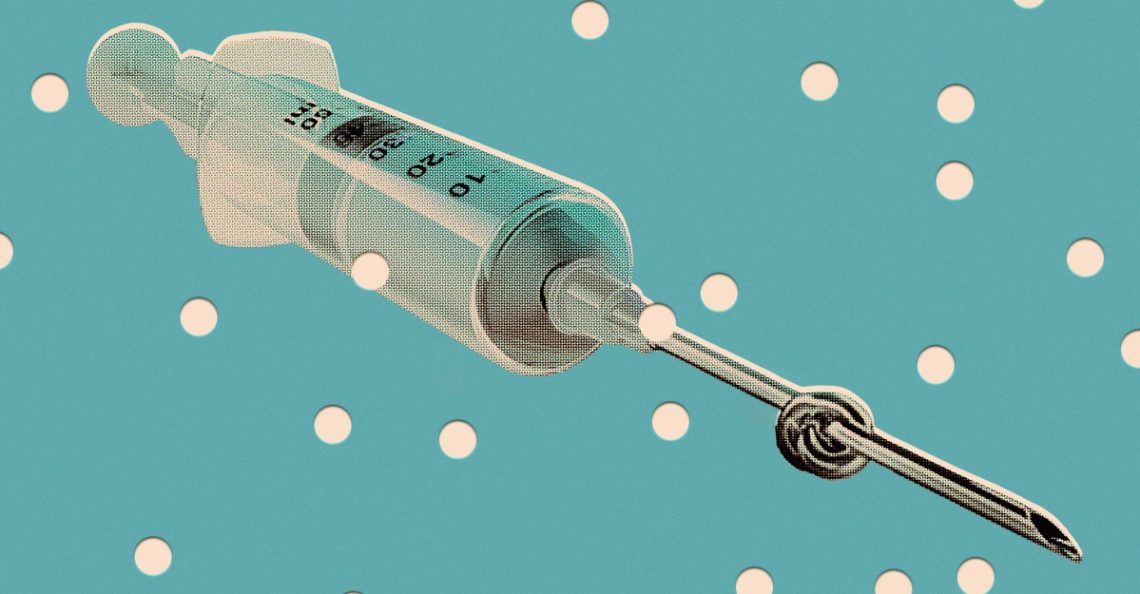When Robert F. Kennedy Jr. accepted his new position as health secretary, he made a big show of distancing himself from his past life. “News reports have claimed that I am anti-vaccine or anti-industry,” Kennedy, who has for decades promoted the debunked notion that vaccines cause autism and has baselessly sown doubt over the ability of the U.S. government to vet shots, said at his confirmation hearing in January. “I am neither. I am pro-safety.”
But for all Kennedy’s talk, this week, he did exactly what a person would do if they were trying to undermine the scientific consensus on vaccination in the United States. He abruptly dismissed the entire expert committee that advises the CDC on its nationwide vaccine recommendations—and began to fill the roster with like-minded people ready to cast doubt on the benefits of vaccination.
Like Kennedy, few of these new appointees to the Advisory Committee on Immunization Practice, or ACIP, have openly embraced the notion that they are anti-vaccine. But among them are individuals who have spoken out against COVID vaccines and policies, claimed vaccine injuries for their own children, and falsely linked COVID shots to deaths—or even baselessly accused those vaccines of “causing a form of acquired immunity deficiency syndrome.”
In January, I wrote that remaking the committee in exactly this way would be an especially harmful blow to Americans’ health: Perhaps more than any other body of experts in the U.S., ACIP guides the nation’s future preparedness against infectious disease. By appointing a committee that is poised to legitimize more of his own radical views, Kennedy is giving his skewed version of scientific reality the government’s imprimatur. Whether he will admit to it or not, he is serving the most core goal of the anti-vaccine movement—eroding access to, and trust in, immunization.
In an emailed statement, Health and Human Services Press Secretary Emily G. Hilliard reiterated that “Secretary Kennedy is not anti-vaccine—he is pro-safety, pro-transparency, and pro-accountability,” and added that his “evidence-based approach puts accountability and radical transparency first, which will restore trust in our public health system.” (Kennedy, notably, promised Senator Bill Cassidy during his confirmation process that he would maintain ACIP, as Cassidy put it, “without changes.”)
Since the 1960s, ACIP has lent government policy on vaccines the clout of scientific evidence. Its mandate is to convene experts across fields such as infectious disease, immunology, pediatrics, vaccinology, and public health to carefully vet the data on immunizations, weigh their risks and benefits, and vote on recommendations that guide the public on how to use them—who should get vaccines, and when. Those guidelines are then passed to the CDC director, who—with only the rarest of exceptions—accepts that advice wholesale.
“These recommendations are what states look to, what providers look to,” Rupali Limaye, an expert in vaccine behavior at the Johns Hopkins Bloomberg School of Public Health, told me. Medicare, for instance, is required to fully cover the vaccines that ACIP recommends; ACIP also determines which vaccines are covered by the Vaccines for Children Program, which provides free vaccines for children whose families cannot afford them. The experts who serve on ACIP have the opportunity, more than just about any of their scientific peers, to translate their vaccine rhetoric into reality.
So far, Kennedy has dismissed the 17 people who were serving on ACIP, and filled eight of the newly open slots. Most of the new nominees have an obvious bone to pick with at least some vaccines, especially COVID shots, and have publicly advocated for limiting their use. Among the new members, for instance, is Robert Malone, a controversial physician who has spoken at anti-vaccine events, where he has denounced COVID vaccines and, without evidence, suggested that they can worsen coronavirus infections. Another appointee is Vicky Pebsworth, who serves on the board of the National Vaccine Information Center, an anti-vaccine nonprofit previously known as Dissatisfied Parents Together. A third, Retsef Levi, a health-care-management expert, called for the administration of COVID vaccines to be halted in 2023, and has questioned the shots’ safety, despite a large body of evidence from clinical trials supporting their continued use. Overall, “this is not a list that would increase confidence in vaccine decisions,” Dorit Reiss, a vaccine-policy expert at UC San Francisco, told me. (None of these new ACIP members returned a request for comment.)
The next ACIP meeting is scheduled for the end of this month—and the agenda includes discussion about anthrax vaccines, chikungunya vaccines, COVID-19 vaccines, cytomegalovirus vaccine, the human-papillomavirus vaccine, influenza vaccines, the Lyme-disease vaccine, meningococcal vaccines, pneumococcal vaccines, and RSV vaccines. That’s a big slate of topics for a brand-new panel of members, Paul Offit, a pediatrician and a vaccine expert who has previously served on ACIP, told me: Depending on how the meeting is structured, and on the input from CDC scientists, these new committee members could substantially alter the guidelines on several immunizations—perhaps so much so that certain shots could stop being recommended to certain groups of Americans. Based on the composition of the committee so far, Offit predicts that the new ACIP will eventually push the CDC away from full-throated endorsement of many of these vaccines.
Even subtle changes in the wording of CDC recommendations—a should swapped for a may—can have big ripple effects, Limaye told me. Insurers, for instance, may be more reluctant to cover vaccines that are not actively endorsed by the CDC; some states—especially those in which vaccines have become a political battleground—may stop mandating those types of shots. If the CDC softens its recommendations, “we will likely see more partisan divides” in who opts for protection nationwide, Jason Schwartz, a vaccine-policy expert at Yale, told me. Pharmaceutical companies may, in turn, cut down production of vaccines that don’t have full CDC backing—perpetuating a cycle of reduced availability and reduced enthusiasm. And primary-care physicians, who look to the CDC’s vaccination schedule as an essential reference, may shift the language they use to describe childhood shots, nudging more parents to simply opt out.
Historically, medical and public-health associations, such as the American Academy of Pediatrics, have aligned their vaccine recommendations with ACIP’s—because those recommendations were all driven by scientific evidence. Now, though, scientific consensus and government position are beginning to diverge: Multiple groups of physicians, scientists, and public-health scholars have issued statements condemning the vaccine decisions of Kennedy and his allies; a number of prominent scientists have now banded together to form a kind of alt-ACIP, dubbing themselves the Vaccine Integrity Project. As the views of fringe vaccine groups become the government’s stance, Americans may soon have to choose between following the science or following what their nation’s leaders say.
Identifying as “anti-vaccine” has historically been taboo: In a nation where most people remain largely in favor of shots, the term is pejorative, an open acknowledgement that one’s views lie outside of the norm. But the more vaccine resistance infiltrates HHS and its advisers, the more what’s considered normal may shift towards Kennedy’s own views on vaccines; ACIP’s reputation for evidence-backed thinking could even gild those views with scientific legitimacy. Assembling one’s own team of friendly experts is an especially effective way to sanewash extremism, Reiss told me, and to overturn the system through what appear to be normal channels. If the nation’s most prominent group of vaccine advisers bends toward anti-vaccine, the term loses its extremist edge—and the scientists who argue, based on sound data, that vaccines are safe and effective risk being labeled anti-government.
The post The True Beginning of America’s Anti-Vaccine Era appeared first on The Atlantic.




